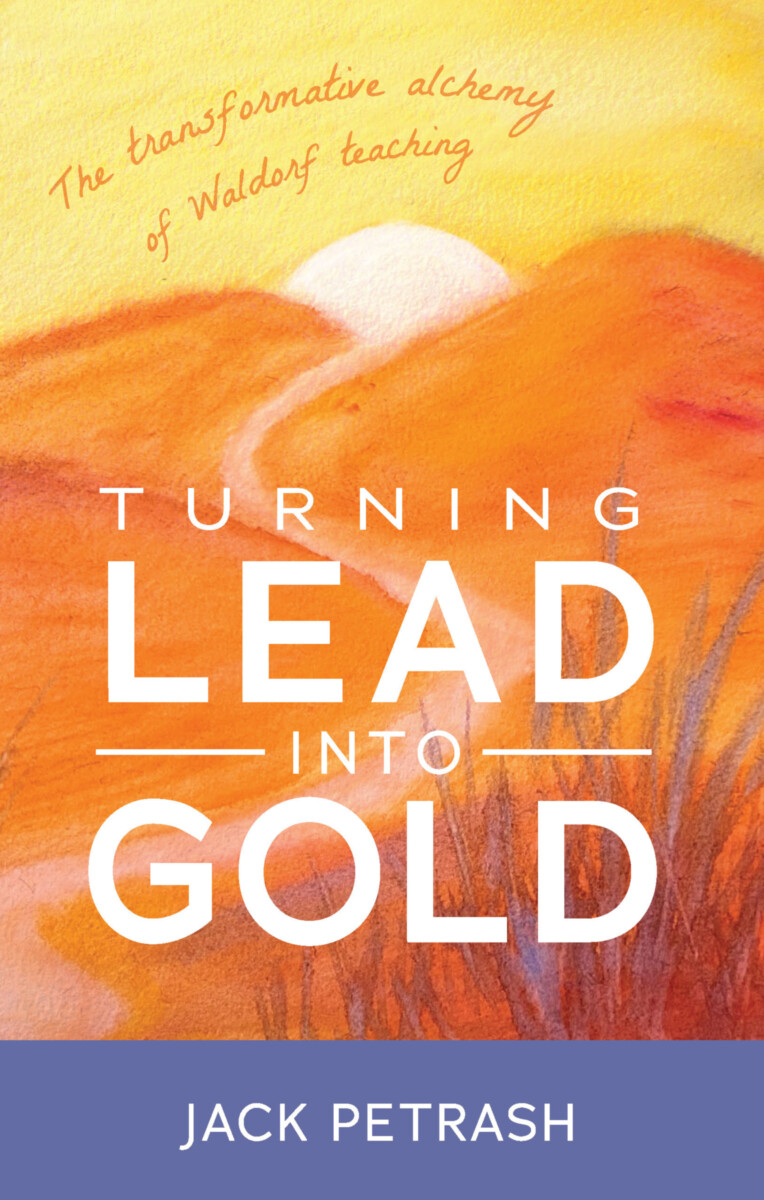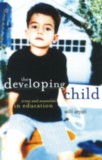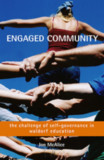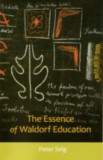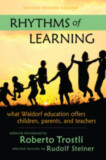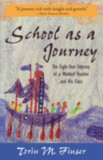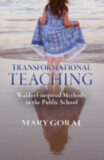Turning Lead into Gold
The Transformative Alchemy of Waldorf Teaching
- Publisher
Bell Pond Books - Published
11th October 2022 - ISBN 9781952166112
- Language English
- Pages 216 pp.
- Size 5.5" x 8.5"
“The pieces in this book come mostly from moments in deep time, moments when I found myself thinking somewhat shamefacedly, ‘Oh, now I get it.’ And, interestingly enough, a good many of those moments of insight occurred with classroom experiences when I clearly ‘didn’t get it.’” (from the introduction)
Teachers and their styles are as various and unique as the polyphonic symphony of human life. And yet there are certain archetypal traits that would seem to grace the greatest and most effective of teachers: unquestioning dedication, flexibility, good humor, and an unpretentious openness to learning from anyone and everything are a just few.
Jack Petrash has spent the better part of his life teaching children, and teaching those who would also teach children, and the chapters that make up Turning Lead into Gold are filled with his sensitive observations and insights into all aspects of teaching and being a teacher, and a lifelong learner, born of these traits and having walked this path with open eyes and loving heart.
Turning Lead into Gold provides light and insight for teachers, parents, and caregivers, whether brand new or well-seasoned by their own experience.
Turning Lead into Gold by Jack Petrash is a book for Waldorf teachers, parents, and educators. The theme of the book is Jack’s endless enthusiasm for telling a story, which is what he does when he teaches or writes a book. He loves to learn and loves to share his love of learning with his students. His alchemical persona allows him to follow his students from the first grade to the eighth grade. Jack taught first-to-eighth grades four times! Think of each year starting a new curriculum for each group of distinct individuals. I have not met any other person who has done this four times. That is an astounding accomplishment! In sports this would be the equivalent of going to four separate Olympic games.
How to teach each grade from the first to the fifth to the eighth puts distinct demands on a teacher. Each year has its unique evolutionary development. As his students evolve as individuals, Jack evolves with them going from an artistic teacher for the first grade and then growing to an academic teacher in the seventh and eighth grades. Dr. Steiner’s curriculum is aimed at addressing the growing child with stories in the first grade and evolving to the Greek culture in fifth grade and the onto modem times in the eighth grade.
Each individual child is treated as a developing individual with unique gifts and needs. The key is to listen to the child right in front of you, and also to listen to the spiritual guides that are all around you. Jack emphasizes the “surround,” by which he means that you create a loving, supportive environment that allows the child to mature in a safe place. Since children love to imitate, Jack understands the critical importance of the surround demonstrating the True, the Beautiful, and the Good.
His book is a book of experiences. Jack has experienced that you are never alone as a teacher, even in your darkest moments. The children want you to succeed as does the spiritual world. Your fellow teachers, the children’s parents, all want you to succeed as a teacher. No one wants a bad teacher. We all want good teachers. We have but to ask for grace and listen.
I have a positive bias toward Jack. I went to The Waldorf Institute with him in 1972–73. Don’t be fooled by that kind demeanor. He was clearly a Queens guy who knew how to use his elbows in a basketball game. “No blood, no foul.” Jack took that enthusiasm and intensity and aimed it at learning how to learn and then how to teach. Jack observed master teachers and would absorb their craft. Jack’s love of learning is infectious.
He always concentrates on the present day and learns from his mistakes. This is the artistic approach blended with the scientific process. His students have learned from his soul mood to be calm in learning, but also to explode with joy and wonder when appropriate. Jack takes discipline and turns it into joy. What is learning without discipline and joy?
Jack even discusses what we might call failures and turns them into learning situations. He is humble enough to admit that some failures are beyond our modest abilities. Jack discusses the difficult time he had trying to apply Waldorf pedagogy in a public school. There were wins with some students, losses with others, and bureaucratic inanities that bedevil our public schools. Jack does not lose hope and continues to shine a light on the wonders of teaching via his Nova Institute.
— Neill Reilly, author of The Marian Way of Heart Knowledge: From Mary through St. John's Gospel to Rudolf Steiner's Philosophy of Freedom
C O N T E N T S:
Introduction
PART ONE: THE EARLY GRADES
1. What Made Me Think I Could Do This?
2. Straight and Curved
3. Back to the Future
4. Developing Good Habits
5. Morning Circle: Prelude to an Important Question
6. What if I Were Starting a First Grade Now?
7. Second Grade: A Hidden Treasure
8. Monday Morning: Conspiracy in the Classroom
9. Third Grade: A Time of Transition
10. Deepening Our Work
11. Fourth Grade: After the Nine-Year Change
12. The Heart of the Matter
PART TWO: THE IMPORTANT WORK WITH PARENTS
13. Working with Parents
14. Hold Them Close and Let Them Go
15. What the Fathers Taught Me about Parenting
16. The Spiritual and Religious Needs of Children
17. The Twelve-Year Change
18. Taking Hard to Heart
19. Goldilocks Had it Right All Along
20. Wabi Sabi: The Beautifully Imperfect
Coda: A Foray into Public Schools
Acknowledgments
Bibliography
Jack Petrash
Jack Petrash is the founder and director of the Nova Institute, an educator with more than thirty years of classroom experience, and a teacher of teachers. He has written extensively on issues related to innovative classroom instruction. His pieces on parenting have appeared in The Washington Post and on National Public Radio. Petrash’s books include Covering Home: Lessons on the Art of Fathering from the Game of Baseball(2000); Understanding Waldorf Education: Teaching from the Inside Out (2003); and Navigating the Terrain of Childhood: A Guidebook for Meaningful Parenting and Heartfelt Discipline (2004).


